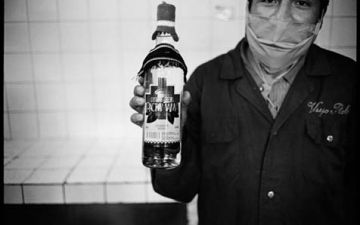Legal Coca Farming
Bolivian President Evo Morales says he's committed to fighting cocaine production and trafficking in his country. Three years ago, he instituted a drug program called "Coca si, cocaine no." That means it's illegal to make cocaine -- but farmers are allowed to grow the coca plant, the basis of cocaine, for traditional uses such as chewing or making tea.


